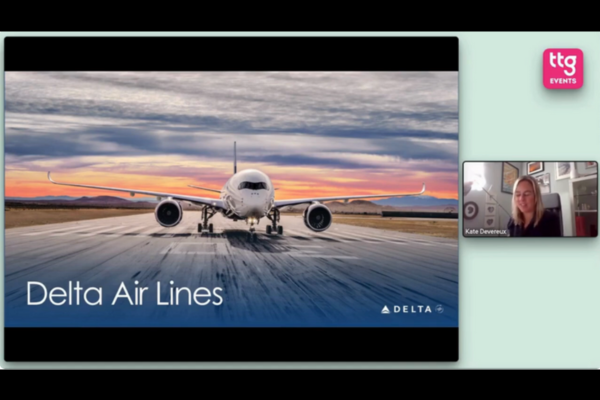How to maximise on Net Promoter Score
Measuring customer satisfaction can help grow revenues and save money. Abigail Healy asks experts why NPS can be an invaluable tool
Customer satisfaction is the holy grail of a successful travel agency. Happy customers equal repeat business and referrals that can ultimately reduce your marketing spend and increase your revenues. But beyond the occasional thank you card and box of chocolates, how can you be sure you are achieving it?
Step in Net Promoter Score (NPS) – a quantitative method to assess your customers’ willingness to recommend your services to others, or their loyalty to your brand. It is measured on an index of -100 to 100 and is a standardised way of gauging customer satisfaction.
Lisa Holt, founder of market research agency Zing Insights, which measured TTG Media’s own NPS (it came out as 56), says the power of NPS is in its simplicity. “It’s easy to understand, [offering] a simple score that quickly shows you the number of people who are promoting your product. It asks customers a single question – how likely are you to recommend a product or service on a scale of 0-10?”
Holt emphasises the importance of remembering NPS is on an 11-point scale that starts at 0 and ends at 10, saying plenty of businesses make the mistake of thinking it is 10 points.
How is NPS calculated?
The score is calculated by subtracting the number of 0-6 scores (detractors) from the 9-10 scores (advocates). Scores of 7-8 are considered neutral or passives.
Holt recommends that with any comparative survey you need to take a margin of error into account when comparing like for like. But with NPS, because you have two percentages (both detractors and promoters), you should double the margin of error to be confident in the results.
“It’s not worth panicking if your score drops a few per cent the next time you measure it,” she explains.
A score of more than 0 is positive and so considered good. Anything higher than +50 is excellent and scores above +70 are considered to be world-class.
Holt adds it’s important to use the comparison correctly too. She says businesses shouldn’t compare their score against others. It should be a measure of how your customers’ likelihood to recommend your own product or service has increased or decreased over time.
What's the score for tourism?
Joanna Causon, chief executive of the Institute of Customer Service (ICS), says for tourism specifically, the most recent UK Customer Satisfaction Index (UKCSI) saw its overall NPS rise by 9.1 points to 36.3.
“There are still a number of areas for improvement: measures for helpfulness and competence of staff, the number of experiences rated as right first time and better website navigation,” she adds.
“Also, satisfaction with complaint handling is one of the biggest areas of difference between the highest- and lowest-rated organisations.”
Taking action
Knowing your score is a good starting point, but it’s not hugely useful if you don’t know how to improve it.
“NPS is only as valuable as what it means, so follow-up questions are essential,” explains Holt.
“Ask for reasons why the score was given. Ask the detractors or passives what you would need to do for them to recommend you and ask your advocates what they would say when recommending you.”
If you do end up with a poor score and have asked customers what you’d need to do for them to recommend you, Holt says it’s likely you will receive a lot of ideas on how to improve.
“Make sure you give enough space for people to give long responses and draw key themes from the feedback. It requires someone to sit down and read through all of the comments.”
Yet she warns against complacency if you receive a positive score. “There’s always room for improvement, so read those comments and use the positive ones to reinforce those messages back to customers in your marketing.”
Why is it worth doing?
Kuoni has found NPS to be a useful way of ensuring it is delivering excellent service, having achieved an improved NPS score every year since it began using the tool in summer 2013.
Darren Grahame-Betts, head of commercial operations, says: “NPS is as important to us as our commercial performance measures.
“The vast majority of feedback we receive is very positive, however there is always room to improve. Having so much feedback to work with, we can confidently identify what’s working really well and what needs extra attention.”
Andrew Fielding, area sales manager (east region), adds that NPS has practical value for his retail teams. “The feedback we receive from customers is invaluable in identifying improvements and resolving niggles quickly for our clients.
“It also gives us the opportunity to incentivise our teams and keep service delivery at the forefront of our personal travel experts’ minds.”
Midcounties Co-operative Travel uses NPS for monitoring both customers who enquire and do not book and those who do book.
Natalie Turner, head of retail branches, says: “When we started using NPS in 2011, our overall retail score was 81 and, for the past two years, it has been 94. We are really proud of our results, and the information is a great tool.”
She adds: “We call it Customer Loyalty Index (CLI) and outsource it to an external company, providing them with the enquiry and booking data each month so they can call customers directly.
“They ask [consumers] for their score and the one thing that would have improved this score and give them a chance to make further comments. All retail branches receive a quarterly score.”
Turner says agents tell all clients they may receive a call so they are not surprised if someone contacts them. “We receive full reports by branch plus the score and comments for each customer contacted and who served them.
“We use this information to assist with monitoring the branch and colleagues’ service delivery, to assist with managing performance and use it in monthly one-to-ones, for praise and recognition and also to identify training needs.”
Holt’s tips on creating an NPS survey
- Think about what you want to know and why, and what you will do with the information.
- Be realistic about what you are asking customers to do and aim to make your survey visually appealing – there are plenty of platforms you can use such as SurveyMonkey.
- Use dynamic routing where possible so people don’t see questions that are irrelevant to them. If they answer “no” to one question, make sure they can bypass related questions that they can’t or don’t need to answer.
- Keep your scales consistent. Don’t have one going from positive to negative and the next from negative to positive.
- Give something back. An incentive can go a long way in encouraging people to complete your survey.
- Look at your data periodically – quarterly, half-yearly or annually. But be sure you have a decent sample size – be cautious not to read too much into a quantitative sample size of fewer than 50.
For more info visit zinginsights.com















